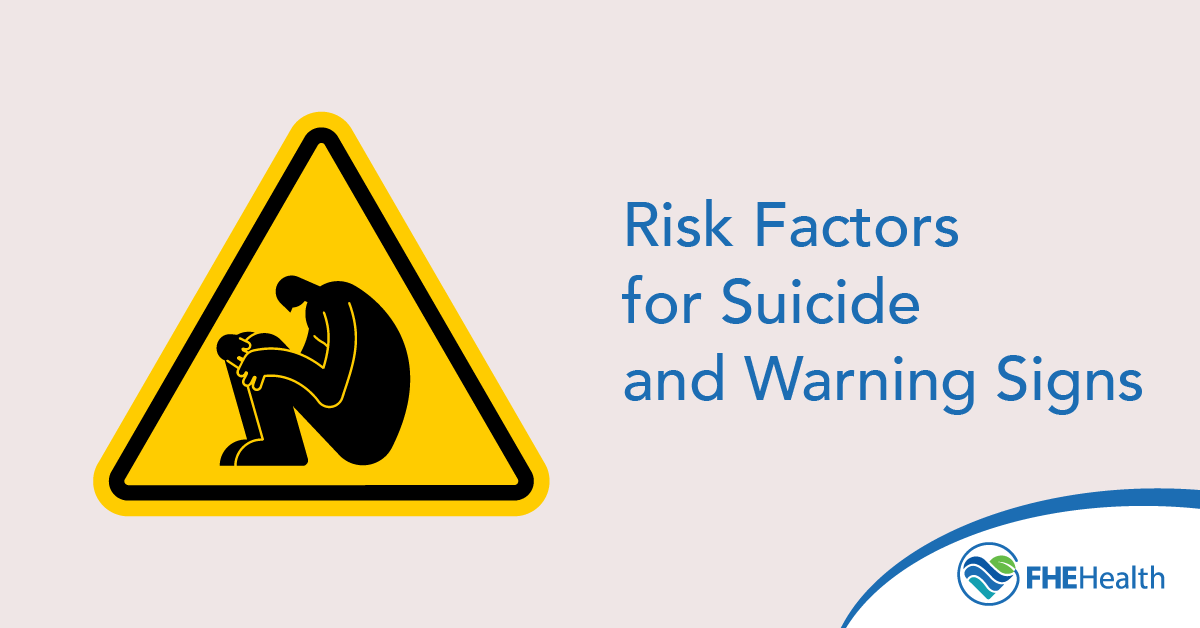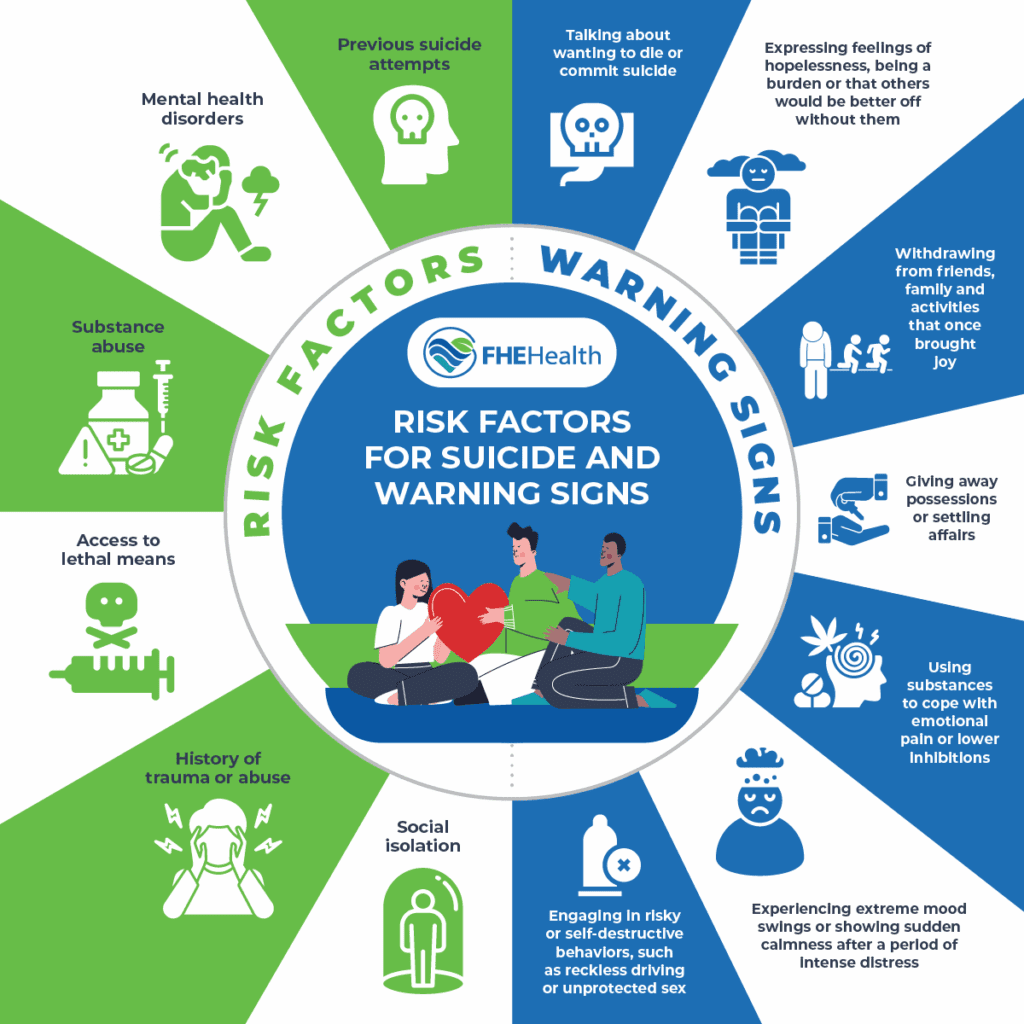
Suicide is a serious, complex issue that often arises from a combination of emotional, psychological and environmental factors. Understanding common risk factors and warning signs plays a critical role in prevention, allowing intervention before a crisis escalates. Additionally, knowing what’s not a risk factor for suicide can help determine an adequate solution.
This article explores common risk factors, warning signs and resources for ongoing suicide prevention. It also offers guidance on how to respond with compassion and care to help someone through a difficult time.
Understanding the Complexity of Suicide Risk
Suicide is a global public health crisis affecting individuals of all ages. In 2023, the Centers for Disease Control reported more than 49,000 people died by suicide, with one death occurring about every 11 minutes. Suicide risk rarely stems from a single cause but rather involves a mix of psychological, biological and social factors.
For example, certain mental health conditions can increase vulnerability, especially when combined with overwhelming life stressors. These include relationship issues, financial hardship or trauma. Biological influences, such as genetic predisposition, can also play a role.
Additionally, access to lethal means, lack of social support and limited mental health resources can intensify risk. Because these elements interact differently for each person, suicide prevention requires a holistic approach that addresses mental health needs, fosters positive social connections, reduces stigma and ensures access to help.

Common Risk Factors and Warning Signs of Suicide Risk
Recognizing common risk factors and warning signs can encourage intervention before a crisis escalates. Here’s a detailed breakdown of what to look for to help a loved one in need.
Risk Factors
The presence of one or more risk factors doesn’t necessarily mean someone will attempt suicide. However, it can increase vulnerability, especially when multiple factors overlap. Common suicide risk factors include:
- Mental health disorders. Conditions such as depression, anxiety, schizophrenia and bipolar disorder can elevate suicide risk, especially when left untreated.
- Previous suicide attempts. If someone has attempted suicide before, they may display suicidal behavior in the future.
- Substance abuse. Alcohol and drug misuse can lower inhibitions, impair judgment and intensify feelings of hopelessness. These effects can influence reckless decisions such as suicidal or self-harming behaviors.
- History of trauma or abuse. Experiencing a traumatic event or abuse, especially in childhood, can have long-term effects on emotional well-being, causing suicidal ideation.
- Social isolation. Loneliness and lack of supportive relationships can contribute to feelings of hopelessness and disconnection that may lead to suicide.
- Access to lethal means. Easy access to firearms, medications or other means can increase the likelihood of acting on suicidal thoughts.
Warning Signs
Warning signs can be subtle or direct, often emerging when a person feels hopeless, overwhelmed or disconnected from support. While the following signs don’t guarantee someone will attempt suicide, they can indicate significant emotional distress and an increased risk of harm. Common warning signs include:
- Talking about wanting to die or commit suicide
- Expressing feelings of hopelessness, being a burden or that others would be better off without them
- Withdrawing from friends, family and activities that once brought joy
- Experiencing extreme mood swings or showing sudden calmness after a period of intense distress
- Using substances to cope with emotional pain or lower inhibitions
- Giving away possessions or settling affairs
- Engaging in risky or self-destructive behaviors, such as reckless driving or unprotected sex
How to Approach and Support a Loved One at Risk
If you’re concerned a loved one may be at risk, it’s important to show compassion, patience and a willingness to listen without judgment. Your role isn’t to fix everything but to help that person feel heard and supported. Positive ways to assist your loved one include:
- Learning about the risk factors and warning signs of suicide
- Creating a safe, nonjudgmental space that encourages open communication
- Expressing genuine concern without criticizing or minimizing their pain
- Having an honest conversation about their suicidal thoughts and what triggers them
- Securing or removing any items that could contribute to suicide attempts
- Checking in regularly to show they’re not alone and that you’re available to help
- Encouraging professional help, such as a therapist, counselor or crisis line
- Calling emergency services or a suicide prevention hotline if a crisis occurs
Resources for Ongoing Suicide Prevention and Support
Witnessing a loved one experiencing a suicidal crisis can be scary and overwhelming. Fortunately, there’s a range of supportive resources and lifestyle choices that can help reduce the risk of suicide. Prevention starts with fostering open, honest communication and ensuring access to professional support. The following resources can help:
- 988 Suicide & Crisis Lifeline. Call or text the 988 Lifeline to connect with trained counselors for free, confidential support in times of emotional distress. They’re available 24-7 and can identify resources for ongoing mental health or substance abuse treatment.
- Crisis Text Line. Contact the Crisis Text Line to receive immediate crisis counseling from trained volunteers for a range of mental health conditions.
- National Alliance on Mental Illness Helpline. NAMI is the nation’s largest grassroots mental health organization that offers referrals and resources in every state. Call or text NAMI’s helpline for immediate crisis support or suicide prevention techniques.
- Veterans Crisis Line. After calling 988, press 1 to connect with the Veterans Crisis Line for confidential crisis support or referrals to ongoing treatment. You don’t have to be enrolled in VA benefits to connect.
Frequently Asked Questions
Seek Ongoing Support at FHE Health
If you or a loved one is struggling with suicidal thoughts, seek immediate help. At FHE Health, our compassionate counselors can address underlying mental health issues, helping you access needed support to heal. Reach out today to discuss treatment options and build a fulfilling life.






